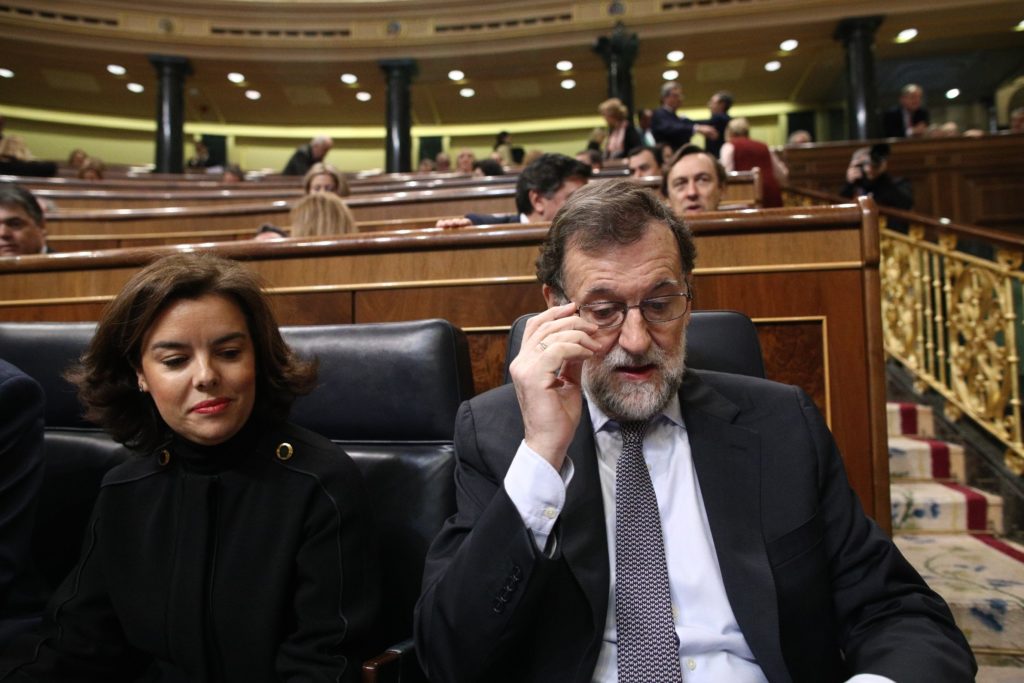29.05.2017 - 16:53
|
Actualització: 29.05.2017 - 16:57
Not even twenty-four hours. The Catalan government’s last offer sent on Wednesday by president Carles Puigdemont in a letter to Rajoy received an answer yesterday. The Spanish president also sent a letter reaffirming what he has been saying for years: that he does not intend to authorise any referendum because that would mean breaching the Spanish constitution. The door is slammed closed.
The last offer had been on the way for days. On Monday, from the centre of Madrid, Puigdemont, accompanied by the vice president, Oriol Junqueras, and the Minister for Foreign Affairs, Raül Romeva, said that the Catalan government, after the work of the National Pact for the Referendum, was ready to make one last offer: to agree either on a referendum or the transition to a new state. For the moment, we already know how the first part ended.
Starting over
The Spanish government is not expected to make any offer, apart from that repeated: to ask the Catalan government to start the game again and discuss the referendum in the Spanish Congress. This is the discourse over which the Spanish executive remains firm, the ministers repeating it constantly like a motto. But the ministers of the Parliament Jordi Turull (CiU), Joan Herrera (ICV-EUiA) and Marta Rovira (ERC) already went to the Congress on 8 April 2013 to defend the parliamentary proposal to give the Government of Catalonia the right to call the 9-N, and Congress rejected it out of hand with 209 votes against.
The Catalan government has no intention of going back to 2013, that phase is over, as the members of the government have said and repeated. Puigdemont explained it because the president of the Economy Circle, Juan José Brugera, yesterday, at the opening of the entity’s annual meeting, called him just as the Spanish government does, and this was Puigdemont’s answer: ‘Over these six or seven years, we have shown a will to agree and propose. We have gone to Congress to make proposals more than ten times and have voted there too on several occasions. Congress knows this very well, and it is the stage of the great agreement over the statute, in which different institutions came together.’
Parallel discourses
In parallel to this ‘offer’, the Spanish government has started a communicative strategy which consists of attributing the Catalan executive with the preparations for a coup d’état. This week it was the Minister of the Interior, José Ignacio Zoido, the Minister of Defence, María Dolores de Cospedal, and the Minister for Education and government spokesperson, Íñigo Méndez de Vigo, who spoke in these terms, while Rajoy compared Catalonia ‘with the worst of dictatorships’.
So for the moment, the agreed path seems to have run out of rail and is formally dead. Puigdemont has also repeated more than once that the door to negotiation will be open right up to the last second. Now the pact is utopia and all that remains is to know when Puigdemont’s government will take the unilateral path it has promised. It will start to be built as soon as a date and question are decided for the referendum. Yesterday the CUP asked for this to be done immediately, and the government said once more that the announcement would come before the summer; but since yesterday, it is obvious that it could be at any time.



